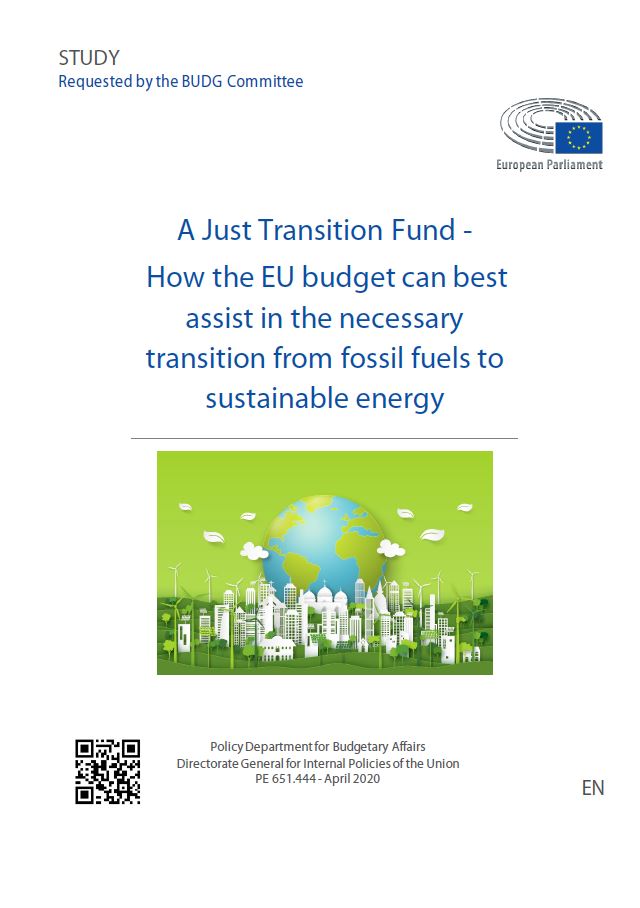External Publication


A Just Transition Fund – How the EU budget can help with the transition
On 14 January 2020, the European Commission published its proposal for a Just Transition Mechanism, intended to provide support to territories facing serious socioeconomic challenges related to the transition towards climate neutrality. This report provides a comprehensive analysis of how the EU can best ensure a ‘just transition’ in all its territories and for all its citizens with the tools at its disposal. It provides an overview and a critical assessment of the Commission's proposal, and suggests possible amendments based on best practices from other just-transition initiatives.






